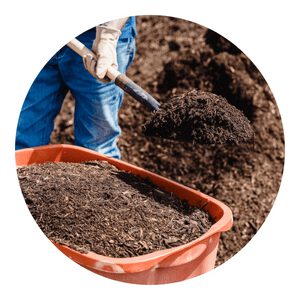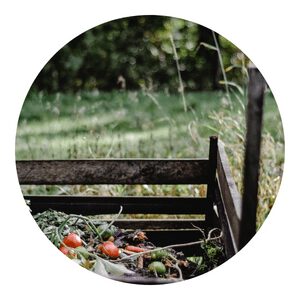Seasonal Maintenance
Gardening is a rewarding and therapeutic activity, but it can be hard work to make sure your garden stays in tip-top shape.
Seasonal maintenance for your garden is essential for the health of your plants and flowers, as well as to preserve the visual beauty of your outdoor space.
Whether you’re a novice or an experienced gardener, understanding what tasks need to be done in each season will help you maintain a vibrant and healthy garden year-round.

Seasonal Maintenance Menu
Definition of seasonal maintenance
Springtime usually requires planting new crops, removing weeds, fertilizing soil, and cutting back dead plants or pruning overgrown branches.
Summertime typically involves watering newly planted crops regularly to promote growth and help control weeds; harvesting ripe fruits and vegetables; as well as removing any pests that may have entered the garden during this period.
Fall brings about preparation for winter weather by covering delicate plants with mulch or plastic sheeting, adding compost to soil for added nutrients, and harvesting late-season fruits/vegetables before temperatures drop too low.
Importance of seasonal maintenance in the garden
Gardening is a great hobby for many people, but to keep your garden looking its best and ensure that it stays healthy, seasonal maintenance is essential.
Regularly tending to your garden throughout the year will help you get the most out of each season.
It can also reduce potential problems, like pest infestations and diseases that can damage plants.
To properly care for your garden, there are a few things you should do on a regular basis during each season.
Spring Seasonal Maintenance
Spring is the time for new beginnings in your garden.
Proper seasonal maintenance during this season can help ensure a healthy, productive garden throughout the rest of the year.
With a few simple steps, you can make sure that your garden is ready to bloom and flourish all season long.
To begin spring seasonal maintenance, start by removing any debris, such as leaves or dead plants that have accumulated over winter.
This will give your plants room to breathe and blossom without competition from dead material which may be harboring unwanted pests or disease.
Next, begin pruning any particularly unruly branches or stems on shrubs and trees in order to minimize damage from storms later in the season.
Additionally, it’s important to check for signs of disease on existing vegetation and address them quickly before they spread further into your garden beds.
Tasks to be completed in the spring
With spring in full bloom, gardeners across the nation have plenty of work to do.
Seasonal maintenance in the garden is a necessary part of any successful gardening endeavor and that includes preparing the soil, planting, and fertilizing.
Preparing the soil for next season’s plants is a crucial first step.
Depending on the type of plants being grown, this may involve loosening or tilling the soil with a shovel or small rototiller.
It might also entail amending or improving nutrient levels by adding compost or other organic matter such as manure to increase drainage and fertility levels.
In addition, weeds should be pulled and any debris removed from the area before planting begins.
Roses blooming, leaves a-glow Time for seasonal maintenance in the garden you know Prune those blossoms, remove the weeds Feed the soil that all their needs Summer rains make them burst forth anew Autumn winds invited too Birds and squirls destined to come by Spring winds will bring them alive.
Chappy The Gardener
Tips for preparing the garden for the spring season
As the spring season nears, do you find yourself wanting to give your garden a fresh start?
The cold temperatures of winter can take a toll on gardens, leaving them in need of some tender loving care.
Fortunately, there are many simple steps that can be taken to prepare the garden for the upcoming spring season and ensure it flourishes throughout the warmer months ahead.
For starters, it’s important to assess what was lost during the winter months and then begin replanting accordingly.
If plants need replacing or new flower beds are desired, this is a good time to plan out what will go where.
Additionally, weeds should be removed and extra soil should be added as needed in order to maintain proper drainage and keep away pests.
Summer Seasonal Maintenance
Summer is a season of growth, but it is also important to devote adequate time to garden maintenance.
The third section of this article will focus on summer seasonal maintenance and how it can help keep your garden looking its best.
It is essential to water plants in the summertime as they are actively growing and require more moisture than other seasons.
Additionally, weeds begin sprouting during the spring and early summer months and many need to be removed with manual weeding or using herbicides.
To prevent pests from entering the garden, it’s helpful to apply insecticides regularly or use companion planting techniques that discourage them from invading.
Fertilizers can also be beneficial for gardens at this time of year as nutrients may have been depleted over time by soil microbes and root systems.
Tasks to be completed in the summer
Summer is a favorite time of year for many, but it’s also the season when gardeners must tackle specific tasks.
During the summer months, garden owners should focus on essential maintenance to ensure their plants and flowers are kept healthy.
Watering, weeding, and pruning are all necessary tasks that should be completed during the summer season.
Watering is one of the most important things you can do for your garden during the summer months.
This is especially true if your area has seen below average rainfall or if there is extreme heat exposure.
Make sure to water deeply and thoroughly so that plants receive enough moisture throughout their roots systems.
Additionally, try to water in the morning as this prevents water loss from evaporation due to sun exposure later in the day.
Weeding can become quite laborious during summer months if left unchecked for long periods of time.
elit tellus, luctus nec ullamcorper mattis, pulvinar dapibus leo.
Tips for maintaining the garden during the summer season
Summertime brings with it the opportunity to enjoy the outdoors, and for gardeners, that means tending to their plants.
As temperatures rise and humidity levels soar, garden maintenance can become difficult without proper guidance.
The most important tip is to water your plants regularly.
When the weather is hot and dry, make sure you are providing enough water for your plants – too much or too little can be detrimental.
You should also fertilize your lawn every 8-10 weeks and apply mulch around trees and shrubs to help retain moisture in the soil.
In addition, prune overgrown branches before they start wilting due to lack of sunlight or become damaged by pests. Finally, watch out for weeds as they can quickly take over a garden if not kept under control.
Fall Seasonal Maintenance
The Fall season brings with it a host of garden maintenance tasks that should be undertaken in order to ensure the health and vibrancy of your garden.
Now is the time to cut back perennials, clean up debris from summer pruning and harvesting, and get your garden ready for winter.
Here are some tips for Fall seasonal maintenance in the garden:
First, remove any dead or diseased foliage and plants from the garden.
This will help prevent potential diseases from spreading throughout the season.
Additionally, it’s important to rake up fallen leaves as they can be a breeding ground for pests.
Next, add a layer of mulch around plants roots to protect them during cold winter months.
Finally, consider planting hardy shrubs such as evergreens or hollies which will offer protection against strong winds throughout winter months and provide year-round interest in the landscape.
Tasks to be completed in the fall
As the weather begins to change and the days become cooler, it’s time to start thinking about completing some seasonal maintenance in the garden.
In order to keep your garden looking its best and ensure that it is ready for the winter season, there are a few tasks that need to be completed.
These include preparing your garden for winter, cleaning up any debris left from summer gardening activities, and planting fall crops.
Preparing your garden for winter will help protect your plants from cold temperatures and other harsh elements of winter weather.
This can include using mulch or plastic sheeting to cover vulnerable plants or digging up bulbs before freezing temperatures arrive.
Additionally, removing any dead plant material will reduce the chance of disease spreading throughout your landscape in springtime.
Finally, planting some fall crops is an easy way to extend the growing season and provide additional yield before winter sets in.
Tips for preparing the garden for the fall and winter seasons
As the summer starts to come to an end, it is important for gardeners to start preparing their gardens for the upcoming fall and winter seasons.
Taking care of your garden now can help ensure everything is healthy and thriving when the warmer months arrive again.
Here are a few tips for seasonal maintenance in the garden.
First, get rid of weeds in order to prevent weed growth from spreading throughout your garden during the colder months.
Trim back any overgrown plants that may be blocking sunlight or taking nutrients away from other plants and flowers in your garden.
After trimming, add a layer of mulch around each plant as it will help retain moisture and protect roots from extreme temperatures during both hot and cold days.
Additionally, make sure all drainage areas are clean and free of debris so rainwater can easily pass through without causing any damage or flooding in your garden area.
Winter Seasonal Maintenance
Winter is a time of rest for many gardeners, but it is still important to perform some seasonal maintenance in order to ensure a successful and healthy garden the following season.
During the winter season, there are several steps that should be taken to protect plants from cold temperatures, damaging winds, and other harsh weather conditions.
The most important step in winter maintenance is to provide adequate protection against frost damage.
This can be done by using blankets or sheets to cover vulnerable plants or by creating temporary greenhouses out of plastic sheeting.
In addition, it’s essential to cut back dead stems and foliage near the end of fall before snowfall begins so that plants can store nutrients during winter dormancy.
Mulching with an organic material such as leaves or straw will also help insulate soil and keep roots warm while protecting them against freezing temperatures.
Tasks to be completed in the winter
As the temperature drops, gardeners across the country must prepare their gardens for the winter season.
Winter is an important time for garden maintenance, and there are several tasks that should be completed before spring arrives.
Pruning, mulching and protecting plants from winter damage are all important steps to ensure a beautiful garden once the snow melts away.
Pruning is one of the most important tasks that should be done in the early stages of winter.
Pruning will help encourage strong growth on shrubs and trees, as well as improve air circulation which can minimize disease problems throughout the growing season.
When pruning shrubs it’s best to remove diseased or dead branches first, then move onto any weaker or overcrowded branches.
Proper pruning techniques should always be followed when dealing with larger trees to avoid damage to trunks or roots.
Tips for maintaining the garden during the winter season
Winter can be a challenging season for gardeners, but with a few easy tips, you can keep your garden in prime condition throughout the colder months.
Winter is a great time for planning and maintenance, so gardeners should use this opportunity to ensure their gardens are ready for the upcoming season.
Here are some simple steps to follow when maintaining a garden during winter:
Firstly, thoroughly clean up the garden by removing dead leaves and wilted foliage from plants that aren’t hardy enough for cold weather.
Additionally, prune back any trees or shrubs that need it and cut down perennials to reduce damage from frost.
If you have an outdoor pond or water feature, make sure these are emptied before temperatures drop too much as this will prevent them from becoming frozen over.
Secondly, take stock of what plants survived and which ones need replacing come spring time.
In conclusion, seasonal maintenance in the garden is an important task to keep your outdoor space looking its best.
Taking the time to prune, weed, and fertilize as needed can help you achieve a healthy, lush garden. It’s also a great way to spend some quality time outdoors while enjoying the beauty of nature.
Don’t forget to take a moment to appreciate all the hard work you’ve put in and enjoy the fruits of your labor!
With proper seasonal maintenance, your garden will be thriving in no time.
Click To Grow

Chapter 11
Harvesting and Storage

Chapter 12
Natural Landscaping

Chapter 13
Sustainable Practices for the Organic Gardener
Helps Us Grow – Share If You Like


















